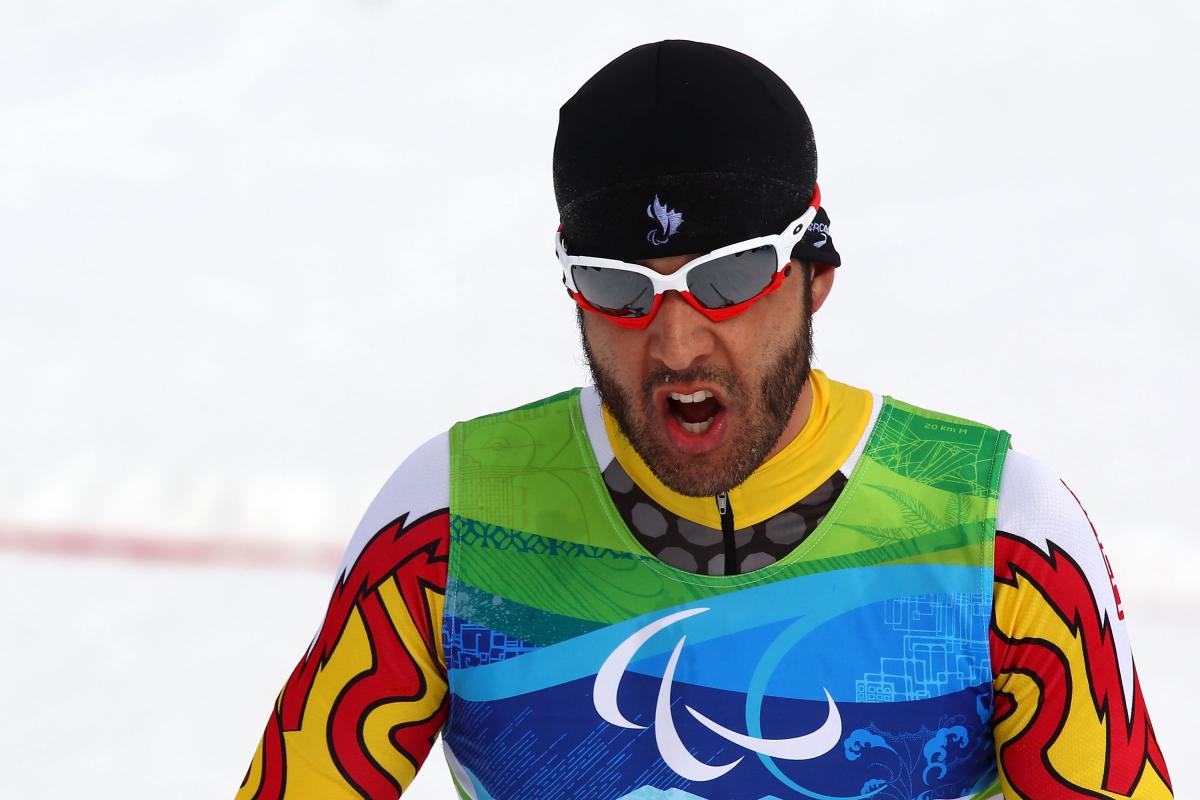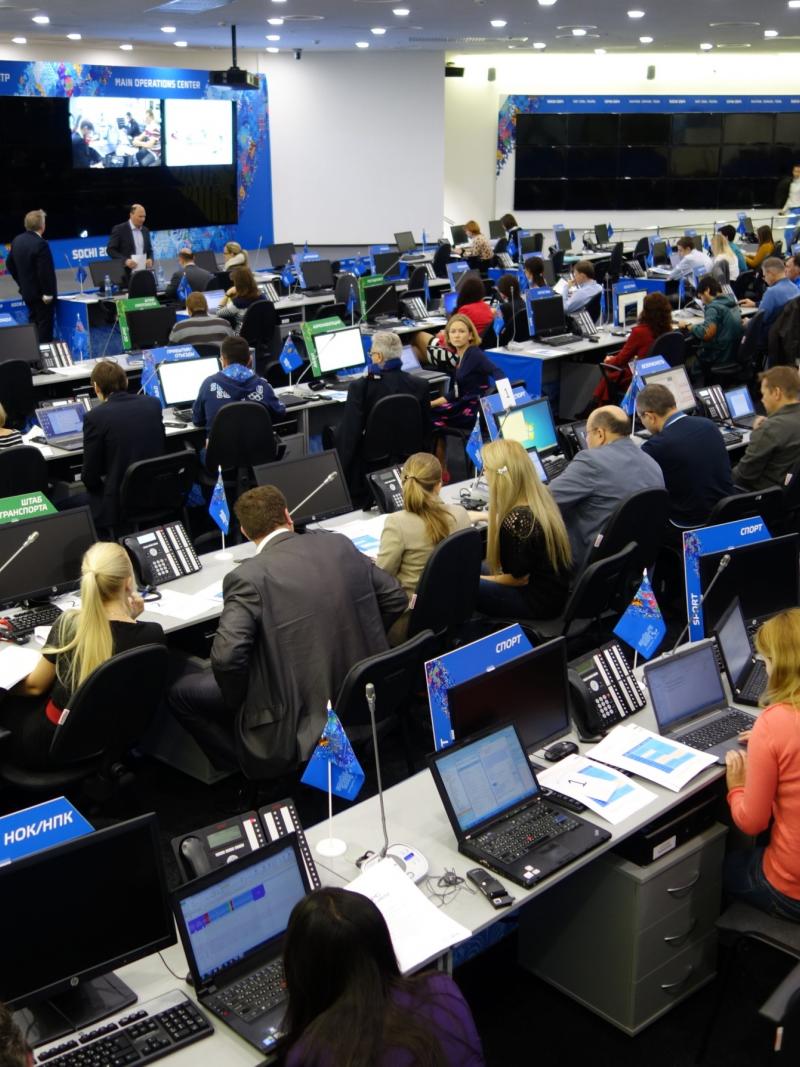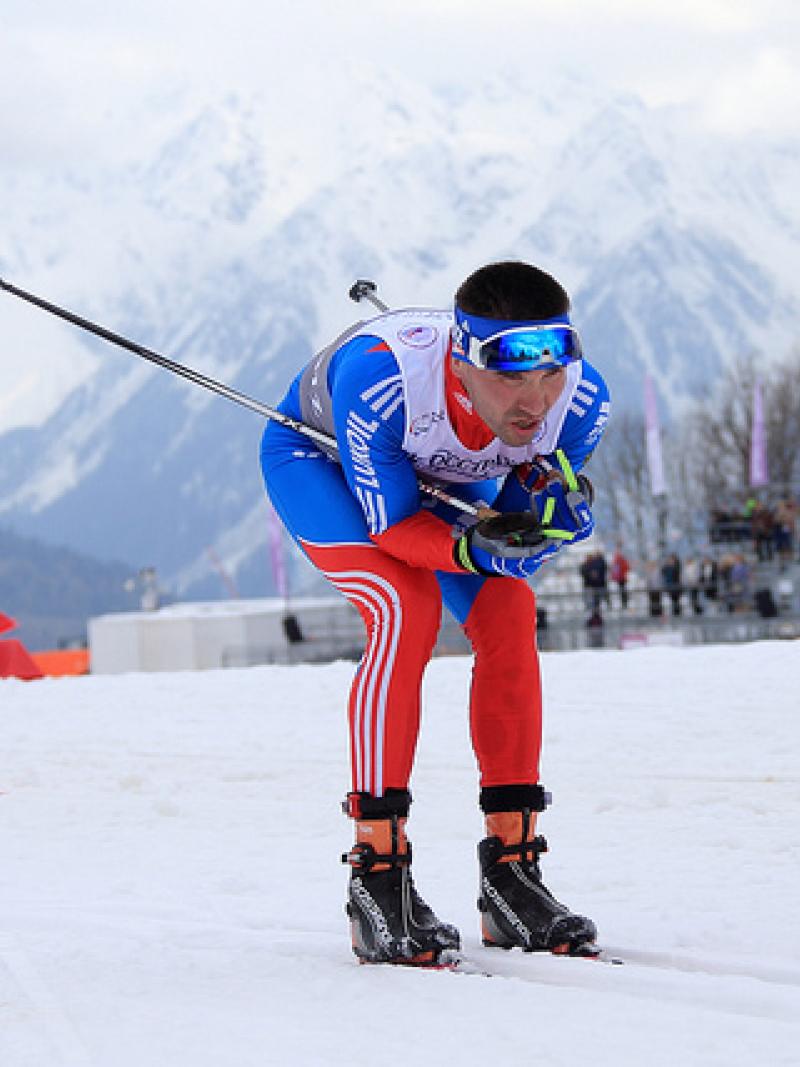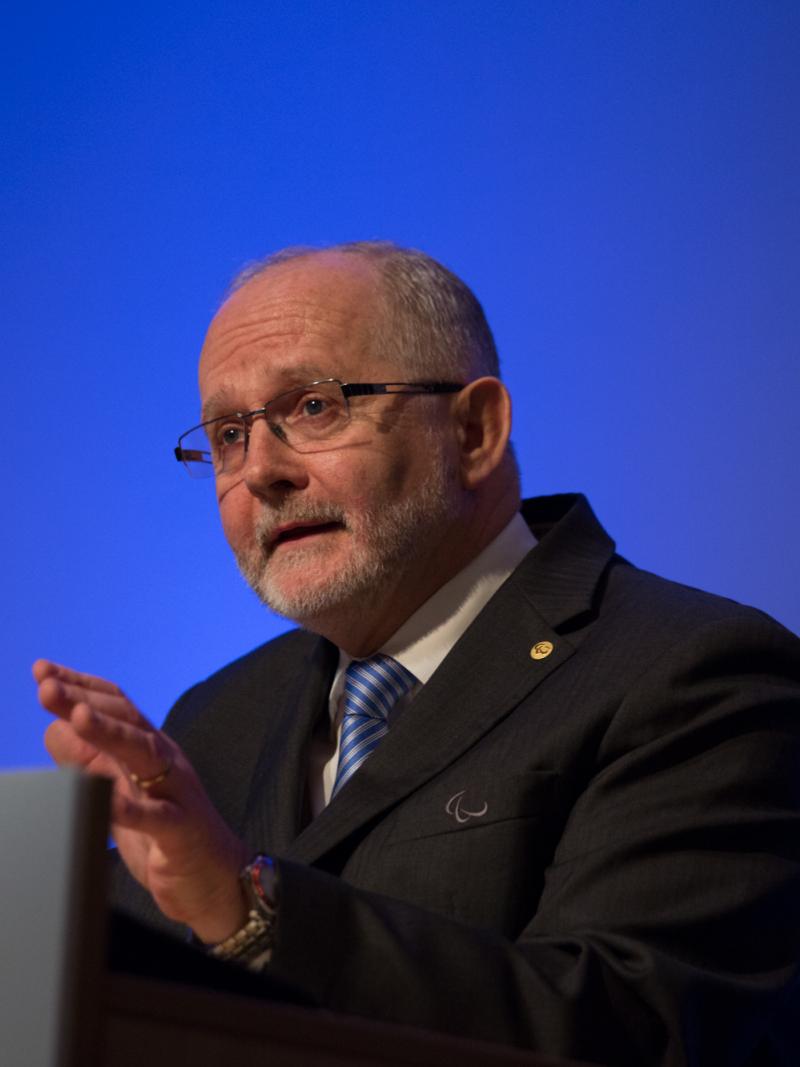Brian McKeever reacts to Canada's Sochi 2014 coverage
Find out what athletes had to say following the major Canadian coverage announcement to mark 100 days until Sochi 2014. 27 Nov 2013
Canada's Brian McKeever looks on after winning the men's visually impaired 20km cross-country skiing race at the Vancouver 2010 Paralympic Winter Games.
Not only is the new announcement something Paralympians needed, but intensified coverage will only help grow the variety of different winter and summer para-sports at all levels in Canada.
When you’ve been to three Paralympics and won 10 medals, three of which are gold, you’ve already seen quite a bit when it comes to international sport.
For Brian McKeever, a Canadian Nordic skier, this has been the case. Not only has McKeever, 34, seen the growth of his sport in terms of competition, but as well as coverage.
Nordic skiing and Paralympic sports as a whole got a big boost on Wednesday (27 November) as the Canadian Paralympic Committee (CPC) announced expanded coverage of the Sochi 2014 Paralympic Winter Games in March.
More than 65 hours of broadcast and close to 350 hours of online streaming will be available for Canadians when the nation’s nearly 50 athletes compete in Russia.
“It’s just great, to know that we’re going to have more coverage than ever, that’s something that Paralympics has needed,” said McKeever.
Canada finished third in the medal standings at the last Paralympic Winter Games with 10 gold and 19 overall medals.
Not only is the new announcement something Paralympians needed, but intensified coverage will only help grow the variety of different winter and summer para-sports at all levels in Canada.
For Jordan Cullum, a local Canadian sledge hockey player on the Halton Peel Cruisers, Wednesday’s announcement and the coverage that is about to come, is something that he has never seen before.
“The sledge hockey was on TV a bit, but it wasn’t as much as there’s going to be this year which is great. It’s definitely moving in the right direction in terms of getting Paralympic sports out there,” said Cullum.
Karen O’Neill, Chief Executive Officer of the CPC, said that Paralympic sport has now become mainstream; although it always hasn’t been that way.
Frank Bruno won three golds for Canada at the Barcelona 1992 Paralympic Games, and he said that disabled sport coverage within the media has never been so good.
“Night and day,” said Bruno when comparing media coverage from 1992 to 2013.
“Because if we were lucky we would of had two maybe three newspapers (reporters) at all and now you have TV, you’ve got radio. But that’s what you want.”
For the time being, athletes, according to McKeever will be locking themselves into their own “little bubbles” to train in preparation for Sochi. Upon arrival in Sochi and while preparing for competition, McKeever calls the new announcement a moral booster.
“It’s a moral booster in that when you’re away from home, as much as we’re focused on the sport and on what we need to do to perform at the same level as our Olympic counterparts, it’s still nice to know that there’s people at home that can watch and cheer,” said McKeever.
Not only is it a moral booster for McKeever but also for his younger teammates and the future of Paralympic sports.
“To be able to go back and tell somebody like Mark Arendz, that this (broadcast deal) is going to go back home to PEI, and to the developing athletes, that they have a chance to, if they’re not at the Games, that they’ll be able to study the top level and know that they can get there.”
“It’s just great, right?”







